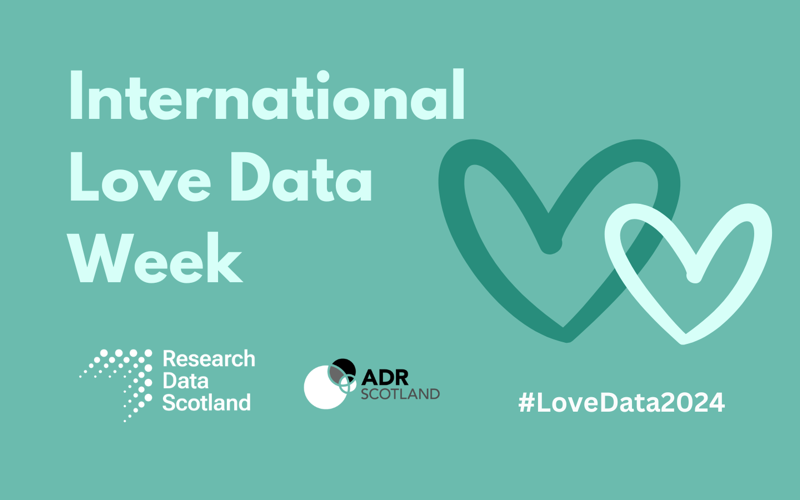
Learning from our users to build the Researcher Access Service
Jen Campbell, Digital Delivery Lead, discusses how we're working with researchers and users to develop the Researcher Access Service.
Jen Campbell
19 Feb 2024

International Love Data Week is an annual celebration of all things data that takes place each February. Amongst the offerings this year were a whole host of Scottish and UK-based events exploring public sector data, including a webinar on the ADR Scotland programme jointly hosted by Research Data Scotland, Scottish Government and Scottish Centre for Administrative Data Research (SCADR).
With such a wealth of information and projects showcased during the week, we’ve picked our top five things you need to know – especially if your research area is Scottish data.
Ideally, we could use the data we already have to answer questions that would help inform policy and improve services.
At the moment, public sector data is often locked away in lots of individual systems, across many different organisations. This makes it difficult and time-consuming for researchers to access and use data. Research Data Scotland aims to speed up research, making it easier for decision-makers to base their insights on up-to-date, good quality research built on good quality data.
With a population of over five million people, Scotland is small enough to link and manage health and social care data together on a nationwide scale, while also large enough to provide a demographic critical mass for research and insights.
This means we’re able to be nimble and coordinated in what we do on a national scale. There’s important work to be done on putting the steps in place to get an underlying data infrastructure that will help us to embrace the advantages we have.
When our data is incomplete, duplicated or incorrect, we’re at risk of drawing the wrong conclusions from it.
As we learned during the Covid-19 response, answering important questions around how people from minority ethnic communities were being disproportionately affected became tricky due to incomplete information available within health data systems. Using this data would have presented a real risk of biasing any statistical analysis. This is where data linkage shows how valuable it can be, in this case it allowed data to be combined on ethnicity and demographic characteristics from other existing data sets to produce a more complete picture.
The ADR Scotland programme is working on a portfolio of de-identified, linkable datasets from across the public sector that can be reused multiple times for access by accredited researchers.
The current system of creating and archiving datasets for each research project is costly and time consuming, with researchers having to wait between 6 to 24 months to gain access to the data they need. Reusing datasets rather than reproducing and destroying for every research enquiry will make it easier and faster to access the data we need. The ability to use our data to react to developing situations will ultimately save time, money and lives.
We’ll be launching our brand new Researcher Access Service, designed with and for researchers and data users. Nine flagship data sets from Public Health Scotland will be the first available through this streamlined pathway for secure access to Scottish public sector data. The service will digitize the process for the first time, making it quicker and simpler for trusted users to access the data they need.
If you’d like to be kept up to date with opportunities to participate in user engagement activities, you can sign up to our engagement contact list.
We’re keen to involve a wide range of people, including early career and experienced researchers, research co-ordinators, evidence-based policy developers, data analysts, data service providers and administrators to inform and shape our work, projects and data access services.
Related content

Jen Campbell, Digital Delivery Lead, discusses how we're working with researchers and users to develop the Researcher Access Service.
Jen Campbell
19 Feb 2024

With the attention on the UK and Scottish COVID-19 inquiries these past few months, many of us are reflecting on lessons learned from the Government pandemic response, and how we can implement good practice from that time to benefit our society in the long term.
Roger Halliday
15 Feb 2024
To stay updated with Research Data Scotland, subscribe to our mailing list and follow us on X (Twitter) and LinkedIn.
